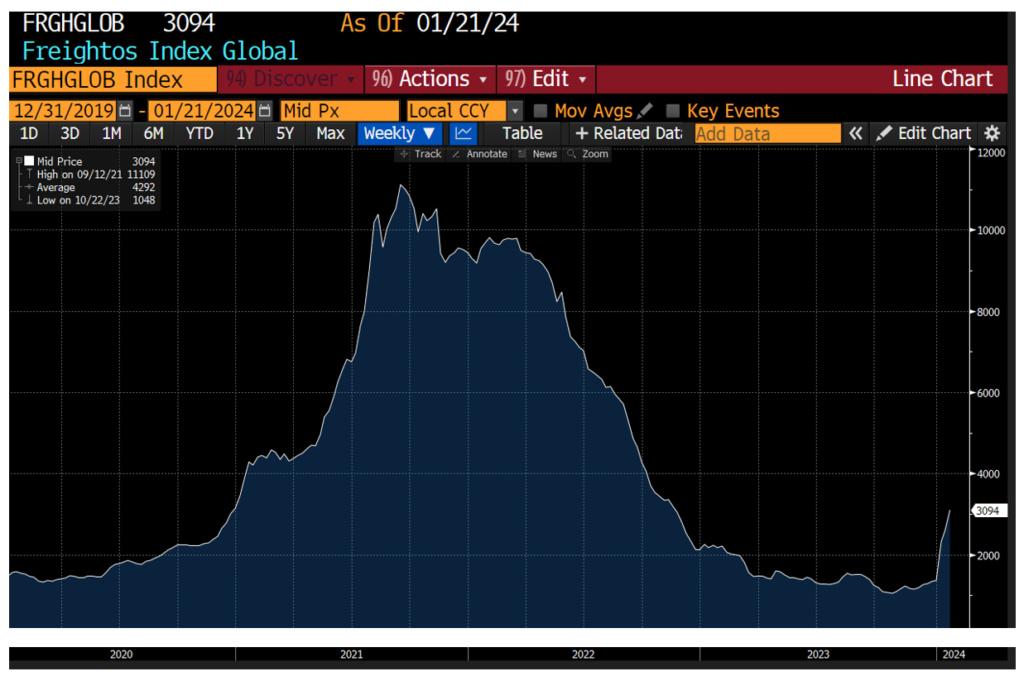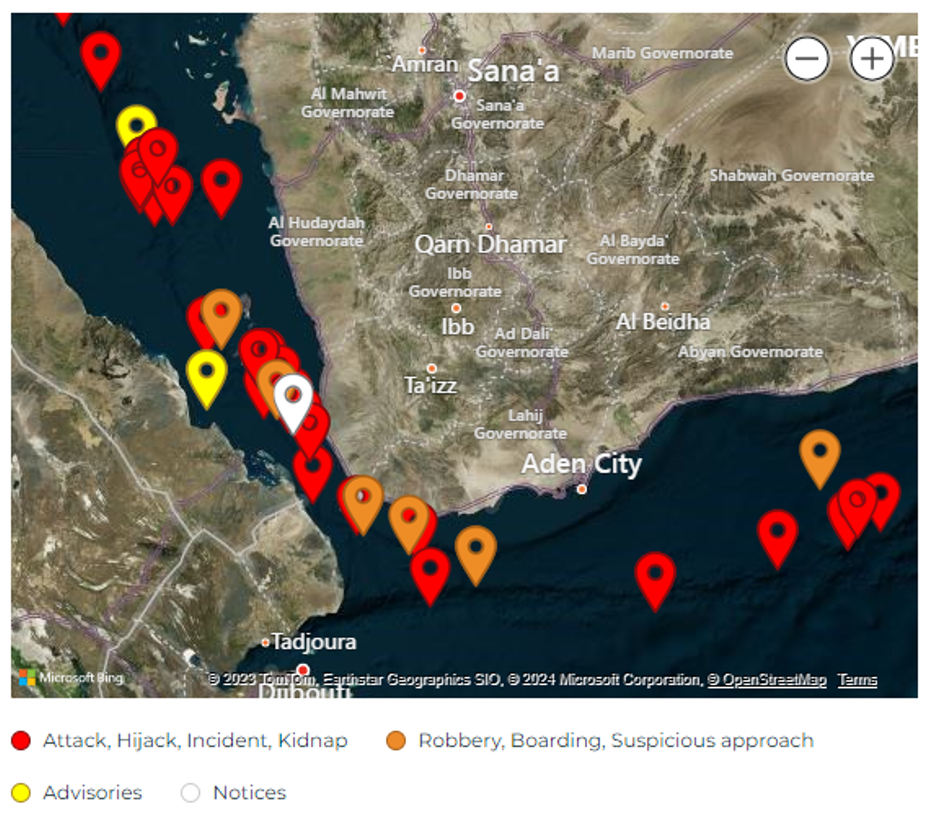The Houthis, who are an Iran-backed rebel group, began targeted attacks in November along the key maritime trade route of the Red Sea, with the Hamas-allied group claiming they are aimed at bringing a halt to the war in Gaza. In this piece we explore the intricate connections between these geopolitical tensions, the activities of the Houthi rebels in the Red Sea, and the impact on global inflation.

An armed Yemeni sits on a boat in front of the Galaxy Leader cargo ship last month
Source: EPA (Media News Coalition) via BBC News
Houthi missile and drone attacks on merchant ships in the Red Sea are significantly impacting the shipping of oil and dry goods. These attacks, which began in November as a show of support for the Palestinians in Gaza, have prompted major carriers such as Maersk, BP, and CMA CGM, to temporarily pause movement of their ships through the Red Sea and Suez Canal.
If the attacks continue more suspensions are likely. Despite some vessels still risking the trip, the elevated cost associated with war insurance for marine terrorism and supplementary wages for crew members has resulted in increased costs for sending goods through this route. According to data from Lloyd’s List, 17,000 ships go through the Suez Canal each year, carrying 12% of global trade worth c.$1 trillion. A recent article by S&P Global Ratings, highlighted that containership tonnage in the Red Sea dropped more than 80% in the second half of December.

Source: Bloomberg – Freightos Index Global (as of 21.01.2024)
Though the recent increase is nothing like what was experienced during the pandemic, the burden of these escalated costs will likely fall on consumers. There are additional consequences as ships avoiding the Red Sea and Suez Canal must take an extended route around Africa to reach Europe. It is estimated that this longer route can add anywhere from 10-14 days to travel, resulting in increased running costs (fuel, salaries etc.). We have seen some response from companies with Tesla and Volvo recently halting production of vehicles in their European factories, as they wait for parts that have been delayed due to the extended travel time around Africa.
The question remains:
Will the military strikes launched by the US-led coalition succeed in halting these attacks?

Source: The Economist
The Houthis currently govern the capital of Yemen and control two-thirds of the country’s 32 million population of the country. They are well-armed and receiving substantial support from Iran. They successfully engaged in a seven-year war with Saudi Arabia, culminating in a stalemate in 2022. Embracing a form of Shi’a Islam that venerates martyrdom, the recent US-led bombings have paradoxically made them even more popular within Yemen. Notably, they have strategically placed their weapon launch facilities in heavily populated areas, often near schools and hospitals. To truly eliminate their military strike capacity would involve significant civilian casualties. Despite the ongoing US-led strikes, there has been little to no impact on the Houthis’ ability to attack ships in the Red Sea. The graphic below highlights the formidable challenges faced by the US-led coalition in safeguarding such a vast area. According to the UK Ministry of Defence, the Houthis have conducted over 30 attacks on international shipping since mid-November, underscoring the complexity and urgency of the situation.

Source: The Economist
The Chinese government has also expressed concern about the situation, advising their cargo ships not to avoid the Red Sea. Despite having influence with Iran, China has not overtly exerted pressure on them. It is possible a cease fire in Gaza might halt the attacks, there is currently no evidence to suggest that is likely.
As of now, we haven’t seen any significant inflationary impact from this crisis, but it is prudent to anticipate such effects in the future.
Discover other interesting insights from our Chief Investment Officer Jeff Brummette on our News & Insights page, such as our recent 2024 Investment Outlook or the Investment Summary for January 2024. Sign up below to receive similar content directly into your inbox.
Want to become an Oakglen client? Get in touch with one of our wealth team via the Contact Us page to hear more about our products and services, and how suitable they are for you and your personal circumstances.

